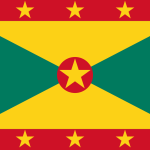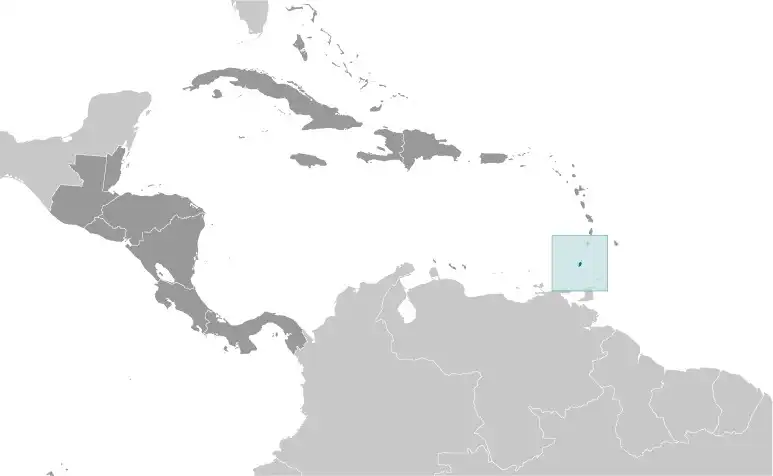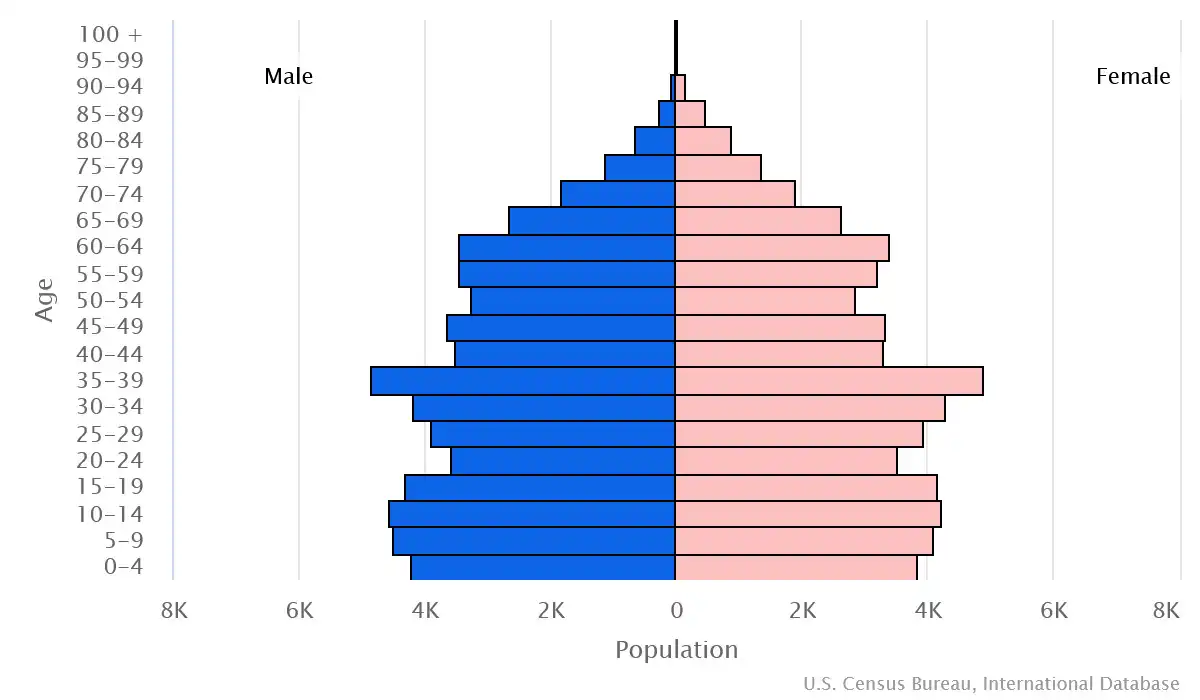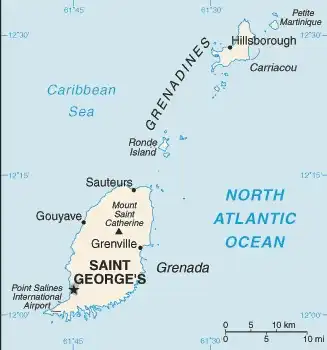
Grenada
Veröffentlicht: 18. June 2022 - Letztes Update: 28. February 2025
Country Data Dashboard

Population
114,621
Growth: 0.27% (2024 est.)
GDP
$1.317 billion
(2023 est.)
Area
344 sq km
| Government type: | parliamentary democracy under a constitutional monarchy; a Commonwealth realm |
| Capital: | Saint George's |
| Languages: | English (official), French patois |
People & Society
Ethnicity (2011 est.)
Religion (2011 est.)
Age structure

Economy
Economic overview
small OECS service-based economy; large tourism, construction, transportation, and education sectors; major spice exporter; shrinking but still high public debt; vulnerable to hurricanes; emerging blue economy incentives
Real GDP (purchasing power parity) in Billion $
Real GDP per capita in $
Exports & Imports in million $
Top 5 Import Partner in 2022 (67%)
Top 5 Import Commodities in 2022
- refined petroleum ⛽
- poultry 🍗
- plastic products ♻️
- wheat 🌾
- cars 🚗
Top 5 Export Partner in 2022 (67%)
Top 5 Export Commodities in 2022
- nutmeg/cardamom 🌰
- frozen fruits and nuts 🌰
- fish 🐟
- other fruits 🍎
- toilet paper 🛢️
Geography
Map

Area
Natural resources
- timber 🌲
- tropical fruit 🍍
Climate
tropical; tempered by northeast trade winds
Historical Background Information
The indigenous Carib people inhabited Grenada when Christopher COLUMBUS landed on the island in 1498, but it remained uncolonized for more than a century. The French settled Grenada in the 17th century, established sugar estates, and imported large numbers of African slaves. Britain took the island in 1762 and vigorously expanded sugar production. In the 19th century, cacao eventually surpassed sugar as the main export crop; in the 20th century, nutmeg became the leading export. In 1967, Britain gave Grenada autonomy over its internal affairs. Full independence was attained in 1974, making Grenada one of the smallest independent countries in the Western Hemisphere. In 1979, a leftist New Jewel Movement seized power under Maurice BISHOP, ushering in the Grenada Revolution. On 19 October 1983, factions within the revolutionary government overthrew and killed BISHOP and members of his party. Six days later, US forces and those of six other Caribbean nations intervened, quickly capturing the ringleaders and their hundreds of Cuban advisers. Rule of law was restored, and democratic elections were reinstituted the following year and have continued since.
